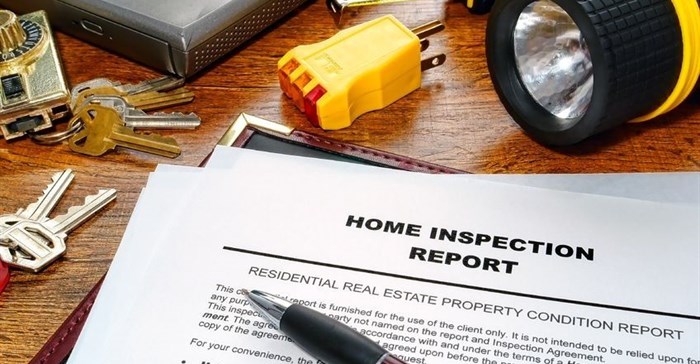While the Consumer Protection Act has gone some way towards protecting buyers, and the new proposed Property Practitioners Bill goes further, property buyers still have to beware. The onus remains on them to inform themselves of the true state of the property they are about to purchase.
Sellers would do well to cover the same ground before they list their property as it could save them a great deal of money and even the sale of their property down the line.
Currently to avoid liability for damages, the seller and their agent are required to inform the buyer of all defects or potential defects, even if the property is being sold voetstoots (in current condition). The new Bill will make it mandatory for sellers to attach a disclosure form to the agreement of sale (or lease). Some real estate professionals already do this. “When a property is listed with us, sellers are asked to complete a Seller's Declaration (an annexure to our mandate), which lists any and all defects the seller is aware of,” says Paul Stevens, CEO of Just Property.
Buyers should always insist on a copy of such a document before signing an Offer to Purchase (OTP), advises Stevens.
Certificates required
The seller is required to provide an electrical compliance certificate, electrical fence certificate, entomologist’s certificate and, if relevant, a gas compliance certificate. In Cape Town, a certificate of plumbing compliance is also required. Certain banks (such as FNB) require a compliance certificate for properties with asbestos. Stevens notes that “transfer of the property cannot proceed without these and will be delayed until such certificates are issued”.
The proposed bill also looks to recommend and regulate home inspections by qualified inspectors. To ensure compliance certificates are legitimate, include the following in an OTP:
- in addition to "wood-destroying insects” insert the words “and organisms" when referring to the entomologist clearance certificate,
- add the word “verified” to the section on electrical certificates,
- add the proviso that the property passes a home inspection before transfer and that if any defects are found, that these be repaired to your satisfaction before transfer),
- add the condition that “the home passes a due diligence investigation”.
What do these mean?
Including "organisms" in the requirements for the entomologist’s certificate expands that report to include an investigation for fungi that can infest and destroy timber, as well as borer etc.
The verified electrical certification clause means that the local provincial electrical inspection authority will be asked to re-check the entire installation. If any faults are found, the authority will require the electrician who issued the certificate of compliance to sort out the faults at the contractor's expense. Any costs to remedy the installation would be for the seller who is responsible for providing the certificate.
The home inspection is payable by the purchaser, who should also choose which professional home inspection company to use. According to House Check's John Graham, such an inspection would look for defects such as:
1. Poor drainage - does storm water flow away from the house properly, does the roof need new gutters and downpipes, is there a danger of water ponding seeping under the foundations.
2. Faulty electrical, plumbing and gas installations. Wiring, DB boards, hot water geysers, plumbing pipes, gas lines and sanitary ware are all checked.
3. Leaking roof, whether from poor flashing, blocked gutters or aging roof coverings.
4. Defective or non-existent insulation.
5. Poor maintenance, eg. DIY plumbing and electrical fixes.
6. Structural damage due to settling or weak moving foundation that means roof structures, doorways, walls and support beams become unstable.
7. Water seepage through windows and doors. Re-caulking windows and doors, adding weather-stripping or other more extensive repairs may be necessary.
8. Rotten window and door frames, timber floors and roofing timbers could be an indication of borer beetles, termites and wood-destroying fungi.
9. Poor ventilation can lead to structural damage and health hazards.
10. Hazardous materials such as lead-based paint, asbestos materials and unhealthy levels of potentially toxic moulds.
Home buyers informed of home defects in these inspections will then decide on how to proceed with the home buying process – they may request that repairs be completed or that the major repair costs be covered by the seller.
Due diligence investigation
A due diligence investigation would include title deed conditions, servitudes and confirmation that the structures on the property have been approved by the local authority. “Good practice is to add a clause in your Offer to Purchase, under Special Conditions, that states a copy of approved municipal plans must be provided by the seller prior to registration of the property,” advises Stevens.
As much as this is good advice for buyers, Stevens emphasizes that it is just as important that sellers do the same homework, even before listing their property. It can save a great deal of heartache, stress and expense down the road.
Putting matters right can be expensive. There are cases of sellers having to pay out 10s of 1000s of rands to rectify electrical faults and plumbing improvements to reach compliance. This goes to show how important it is to keep up with the maintenance needs of your home.





































